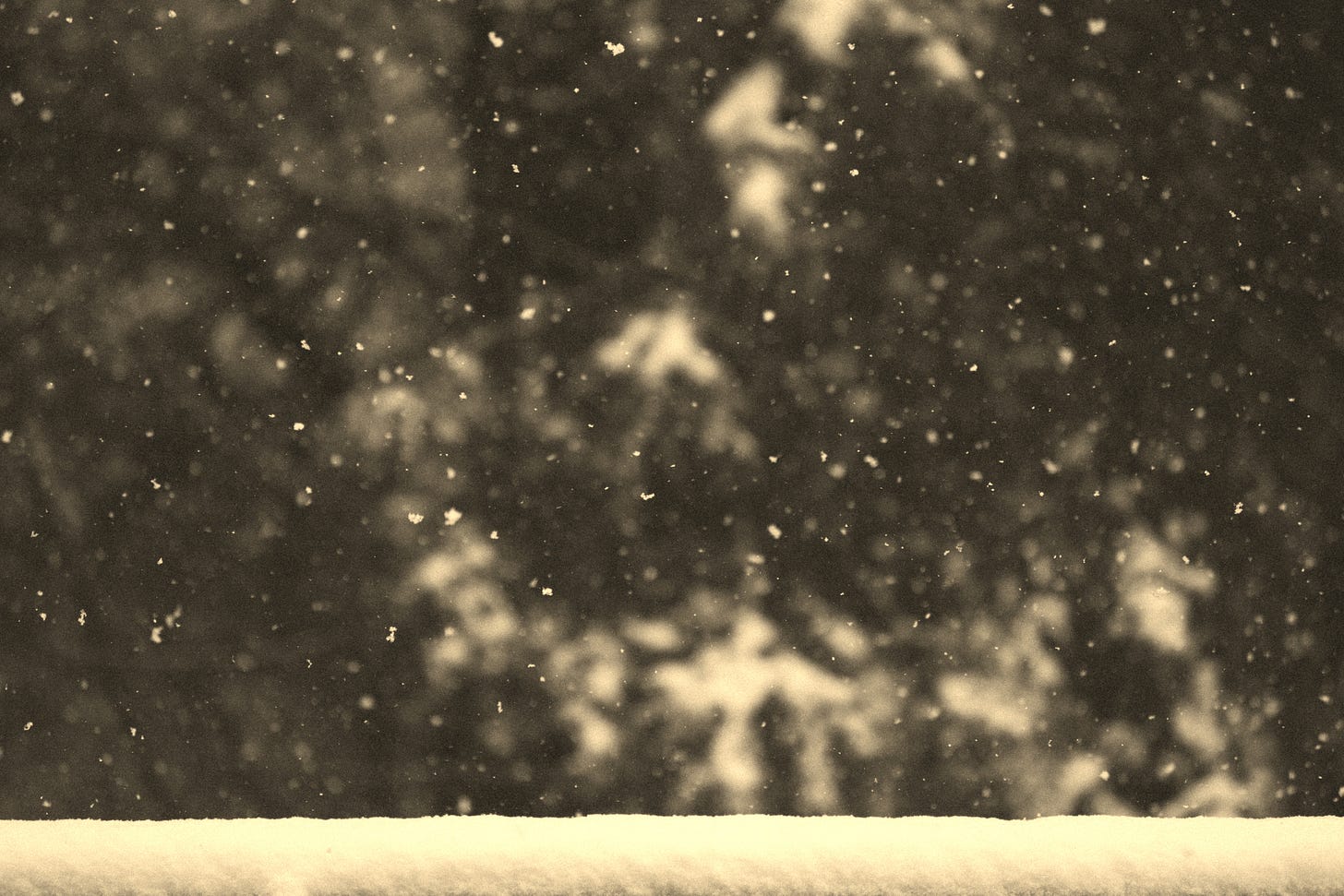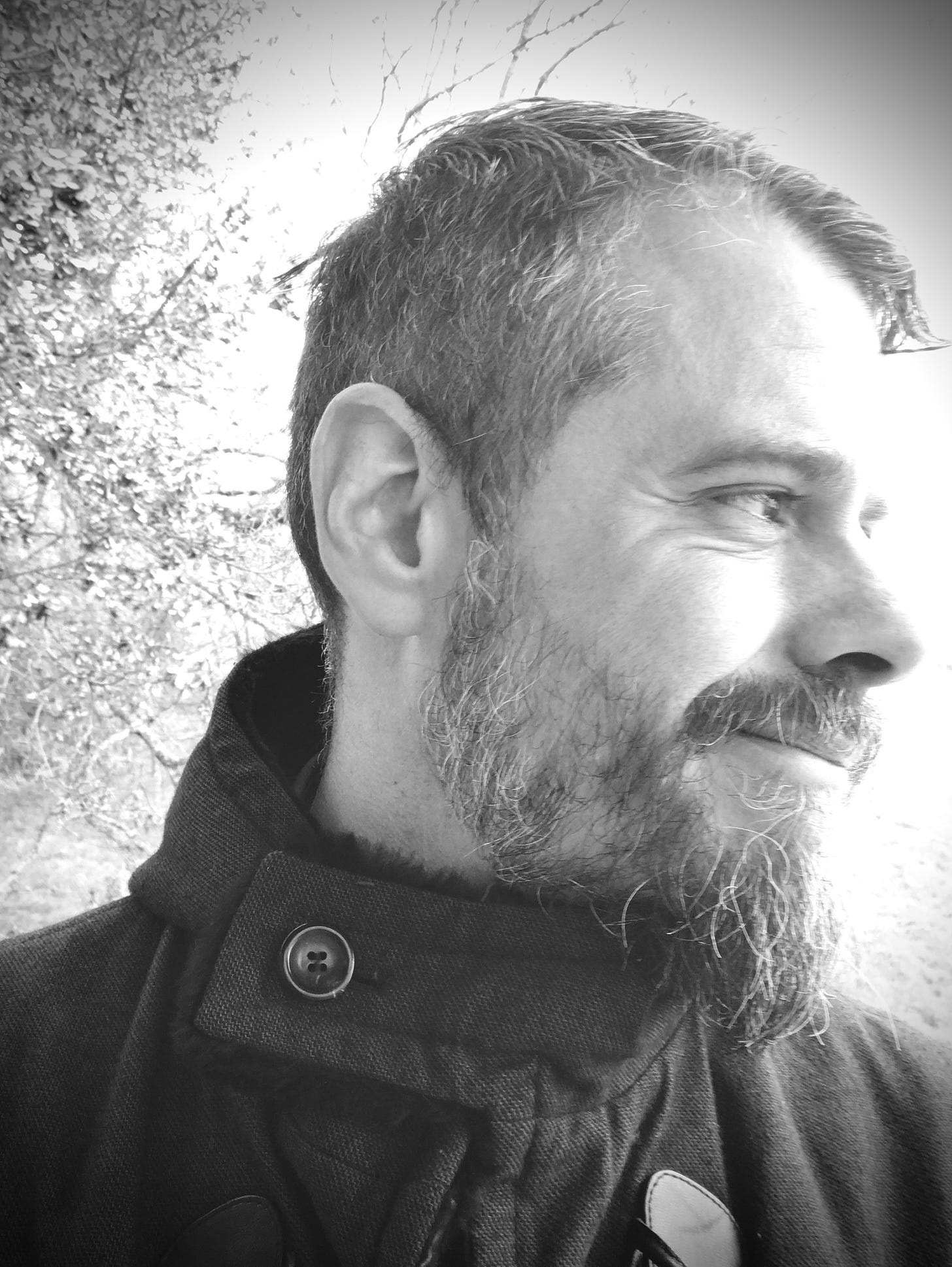We had our first snow a few days ago.
Every year, I look forward to the winter, since cold weather and ice encourage you to not do so much. This last year I’ve been busier than I’ve ever been in my life, including the last few weeks, editing and publishing books, writing, instructing courses, working extensively on gardening, gym work, and quite a few other things.
Unfortunately, the exhortation of winter to “slow down” hasn’t quite inhabited my skull yet, and I’m still incredibly busy. So busy, in fact, I had a brief argument with myself whether I had the time to write something short here.
Which is silly, of course, though there’s also something there. As you know, I’m writing a book for next year on this whole woke thing, and there’s always a question of whether or not something I’m thinking about should become an essay or be included in the book. “Do I write that here or there?” I find myself often asking, which is also often a question of where my drive to write is best placed.
I don’t know if it is like this for other writers, but I often feel “hijacked” by an essay. What I mean is that I didn’t actually plan to write anything, yet suddenly I’m writing for several hours and then I have to change what I was doing for the remainder of the day. Fortunately, this often happens early upon waking, but there have also been a few essays written late at night, an idea refusing to wait for the morning.
It feels sometimes like possession, like something seizes you and won’t let you go until you’ve written. Fortunately, my life circumstances are such that this isn’t too disruptive (I work from home), but sometimes it would be nice to have more of a say on when I’ll be writing.
One of those ideas that I’m channeling into the manuscript instead of into an essay relates to a fascinating “revolutionary” mess that happened in Germany during the late 60’s. I’ve referred to the mess briefly, the Kinderladens, which were anti-authoritarian day care programs started by anarchists and other leftists in West Berlin.
Kinderladens were a kind of utopian project that I can imagine many US anarchists would drool over. They had all the features of every leftist ideal in a perfect package: communal child-raising, autonomous and local control, and particularly a focus on raising children to be independent thinkers, unashamed of their bodies and free of patriarchal and capitalist indoctrination.
What is particularly relevant about the Kinderladens to the woke ideology in the United States is that they were implementations of a kind of reflexive liberation and cultural change ideology. The idea was that children were where cultural change must start, and that change needed to begin with dismantling all the authoritarian ways of seeing the world that the parents had inherited from the system. Similar to the logic of introducing self-declarative pronouns in kindergartens or teaching children about racism in elementary school, the Kinderladens attempted to introduce and implement anti-authoritarian theory to children of that same age.
I probably don’t need to tell you it didn’t quite go so well. The result was lots of children practically sexually assaulting their adult teachers, smearing feces on the walls, and eventually all growing up to embrace the very way of life their parents were trying to destroy.
Two peculiar aspects of the Kinderladens have even more resonance with the woke problem now. The first is that the Kinderladens were seen as antifascist projects, and so those who criticized them were therefore suspect of fascism. Which leads to an even more intriguing parallel: many of the parents and educators themselves had doubts about the organizational structure and theory of the Kinderladens, yet only later (once some of the more terrifying realities of the programs were finally aired) could admit this. Some spoke of being afraid to express their misgivings because it would open them up to accusations of fascist, authoritarian, or counter-revolutionary leanings.
There’s much, much more to this, and the details of what actually happened are a bit terrifying. Parents were encouraged to let their children sexually explore their bodies—their own and also the bodies of their parents. The logic here was that sexual repression was an authoritarian tool and ultimately led to fascism. Thus, if a child wanted to play with his father’s penis or mother’s vagina, to tell them ‘no’ would be to do the work of the authoritarian state. Any parent who admitted not feeling comfortable with all this was actually admitting their own authoritarian tendencies and sexual repression.
That’s the important mechanism there, a kind of ideological trap which precludes all criticism. No one could ask authentic questions about whether this was all actually liberation without being seen as counter-revolutionary, despite the fact that everyone was probably thinking that what was happening wasn’t right. This is, of course, the same mechanism at play in “The Emperor’s New Clothes,” especially the older version of the tale which I mention in this essay:
What is happening with the woke now—with children and with adults—is this same kind of utopian experimentation. It is all painted as liberation, and anyone who feels any kind of misgiving then silences themselves rather than facing scorn and accusations. Those who are not part of the woke are seen as reactionary at best or part of a grand fascist conspiracy manifesting everywhere the woke look.
That’s all I’ll write on this here (the rest is going into the manuscript). I will have another essay soon, though it’s an emotional one for me so it will take some time. Also, I’ve just started training four days a week, which is pretty exhausting while also great fun. I want to write about that soon, too, especially the intense emotions that come with working out parts of your body you’ve never worked out before. The hips are a very, very, very emotional place, it turns out.
Hope you’re all well. And reminder that my book, Being Pagan, is now available in print, digital, and also on Kindle.
More soon,
Rhyd






I really enjoyed Being Pagan. I don't have super much to say about it right now, but I really enjoyed it! In fact so much of it was new to me which is why I don't have qualified comments but also why it was fascinating.
Well said.
I do have a question about the book-Being Pagan. I am not "pagan" although I am a panenthist Follower of Jesus. Is your book written to bring conversation and understanding or to edify and strengthen Pagans and those who are interested in Paganism?
Also, have you read - Brigid's Mantle -by Lilly Weichberger and Kenneth McIntosh?